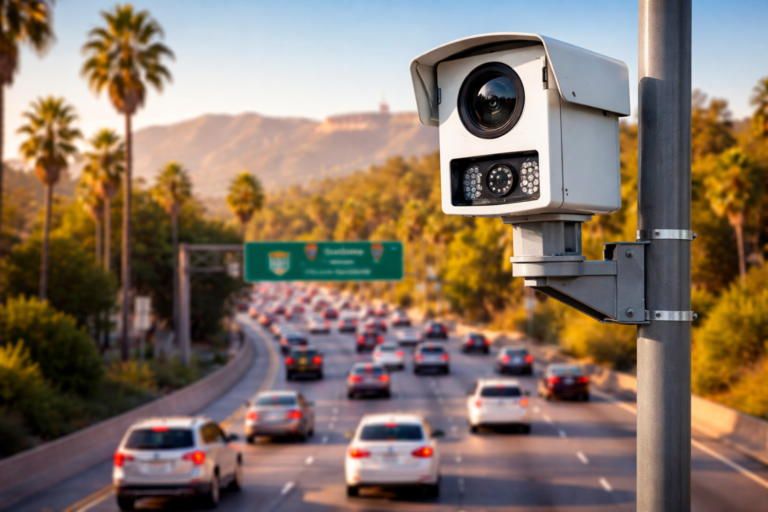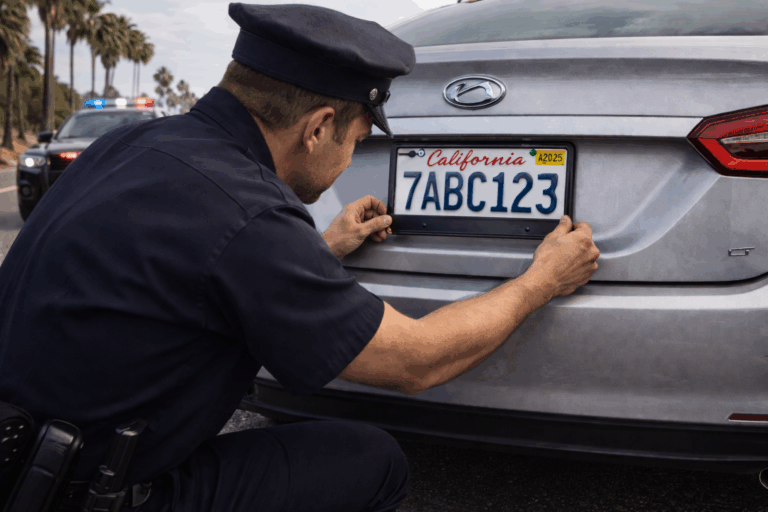You hope that you’ll never get pulled over and have to deal with the awkward situation of handing over your license and registration, but are you prepared for what to do if that happens? Do you know your rights? Before an officer can pull you over in California, certain grounds must be met. If you’re not aware of these, you could miss out on an important opportunity to fight your traffic ticket.
An officer can’t arrest you unless they have probable cause to think that you committed a crime. And to even get to the point of pulling you over, the officer must have what is called “reasonable suspicion” to stop you. Without cause, this means that you can challenge the officer’s stop altogether and use this as a powerful defense strategy.
What is Reasonable Suspicion?
This legal concept applies in many cases in which search and seizure is involved. Officers must have a reasonable basis for believing that criminal activity has occurred. Officers can ask people to stop and answer questions without having a reasonable suspicion, however, which is a common misunderstanding when it comes to those people who are stopped by police. The reasonable suspicion requirement is a much lower standard than probable cause.
Probable cause goes one step beyond this and requires that officers have sufficient factual evidence that someone has committed a crime. Meeting this standard enables that officer to make an arrest.
When it comes to stopping a vehicle, police cannot do this for just any random reason. To temporarily detain someone on the side of the road, an officer must have the reasonable suspicion that the driver violated some kind of traffic law, committed a crime already, or is driving under the influence of alcohol or drugs. For example, an officer might stop a driver who is swerving all over the road because they think that driver is under the influence. This would meet the grounds of reasonable suspicion and then the officer might use the stop as a way to determine whether or not probable cause exists.
It’s not only drunk driving that might prompt an officer to pull you over in California, however. As long as the police had a legitimate reason to stop the car, they can do so. This is most common when an officer sees a driver commit a minor traffic violation. Something as small as an expired registration could cause the traffic stop. Contact the Ticket Clinic today for more help with your case.
Reasonable suspicion is not required at a DUI checkpoint. The courts have determined that this instance is an “administrative procedure” that exempts officers from meeting the grounds otherwise required.
What if the Officer Didn’t Have Probable Cause?
Probable cause mistakes are most common in cases involving DUIs because there is much more at stake. Given the lower barrier an officer needs to meet to stop a vehicle in the first place, it can be difficult to allege that the traffic citation you received is invalid on those grounds alone. If you think that the officer didn’t have probable cause to pull you over in California, you should share these concerns with your traffic ticket lawyer. He or she can do the necessary investigation to determine whether this is a strong enough argument to help protect you from the impacts of a traffic violation on your record.
If the officer did not see some kind of traffic violation to stop the car in the first place, then they must meet the grounds for reasonable suspicion to stop your vehicle. If there was no reasonable suspicion, any evidence they obtained could be suppressed in your case. Imagine that you got pulled over and then the officer collected evidence of drugs in the vehicle.
If there was no reasonable suspicion to stop you, your criminal defense lawyer can argue that the police never had the right to pull you over in California in the first place. Getting that evidence suppressed could be critical for your next steps in that criminal defense case.
A defense attorney would handle this by filing a motion to suppress. The attorney’s job is then to present facts and law indicating that the police were not supposed to have stopped your car in the first place. The prosecutor can even argue in opposition to the motion to suppress. The entire case might even wind up dismissed as a result of this, making it all the more important to retain a criminal defense lawyer who is able to protect your rights from day one.



